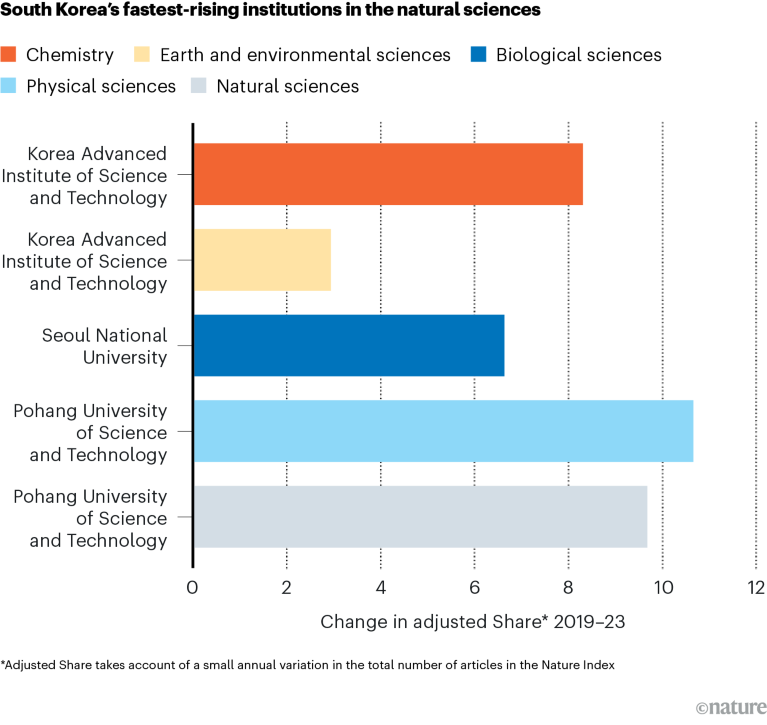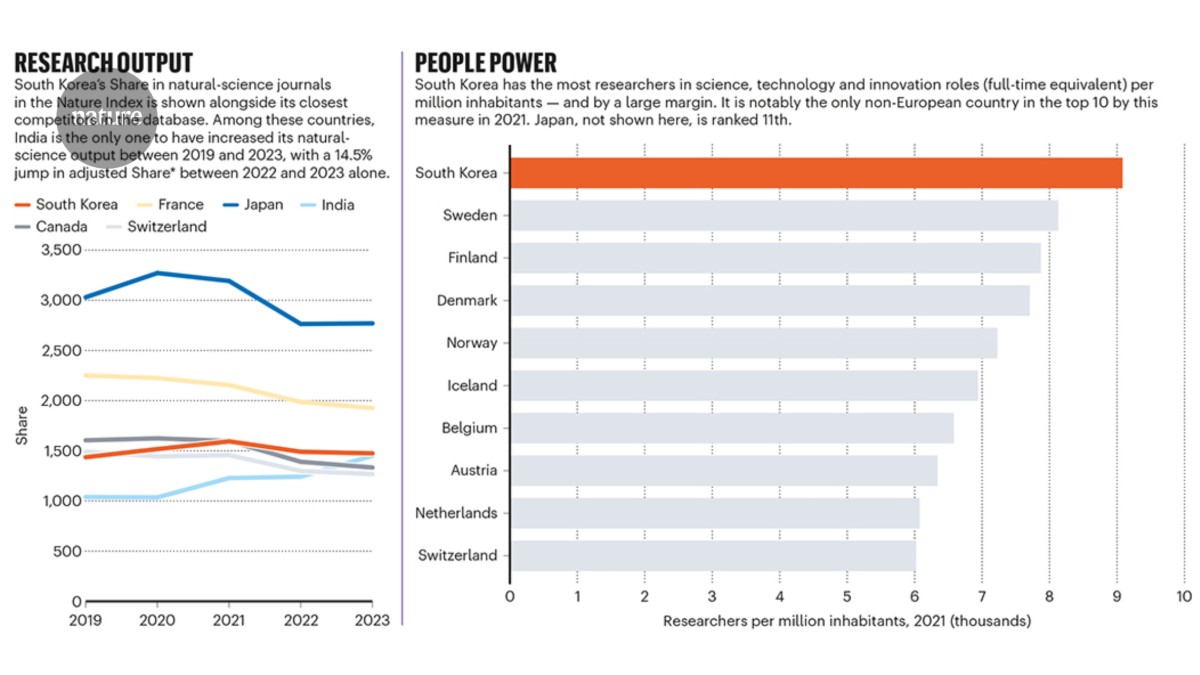Research output
South Korea’s Share in natural-science journals in the Nature Index is shown alongside its closest competitors in the database. Among these countries, India is the only one to have increased its natural-science output between 2019 and 2023, with a 14.5% jump in adjusted Share between 2022 and 2023 alone.
People power
South Korea has the most researchers in science, technology and innovation roles (full-time equivalent) per million inhabitants — and by a large margin. It is notably the only non-European country in the top 10 by this measure in 2021. Japan, not shown here, is ranked 11th.
Subject strengths
A breakdown of subject contributions to countries’ overall 2023 output in journals tracked by the Nature Index is shown for South Korea and some of its closest competitors. With almost 55% of its output attributed to the physical sciences, South Korea joins India in this group as having a dominant subject that is worth more than half of its total output. France and Switzerland, by comparison, have a more balanced output.
On the up
The fastest rising South Korean institutions for the period 2019 to 2023 have recorded very modest gains in natural-science output in the Index, which could speak to the country’s relatively stable performance in recent years. Samsung Group, the only corporate institution in this list, had the largest percentage increase over the period, at 57.98%. This was from a much smaller adjusted Share of 10.77 in 2019, however, compared with Seoul National University at 174.97.
Most improved
The fastest-rising institutions in four natural-science subjects, and in the natural sciences overall, are shown for the period 2019 to 2023. Institutions are ranked according to change in adjusted Share, which for the Pohang University of Science and Technology was larger in the physical sciences than it was in the natural sciences overall.

Source: Nature Index
Big spender
Although South Korea spends more on its research and development as a proportion of its gross domestic product than most other countries in the world, this does not translate to higher Share in the Nature Index. Its output does seem relatively stable, however; among the selected countries shown below, many recorded a decline in Share (per million people) in natural-science journals over the past five years, but South Korea’s drop was smaller than most.


